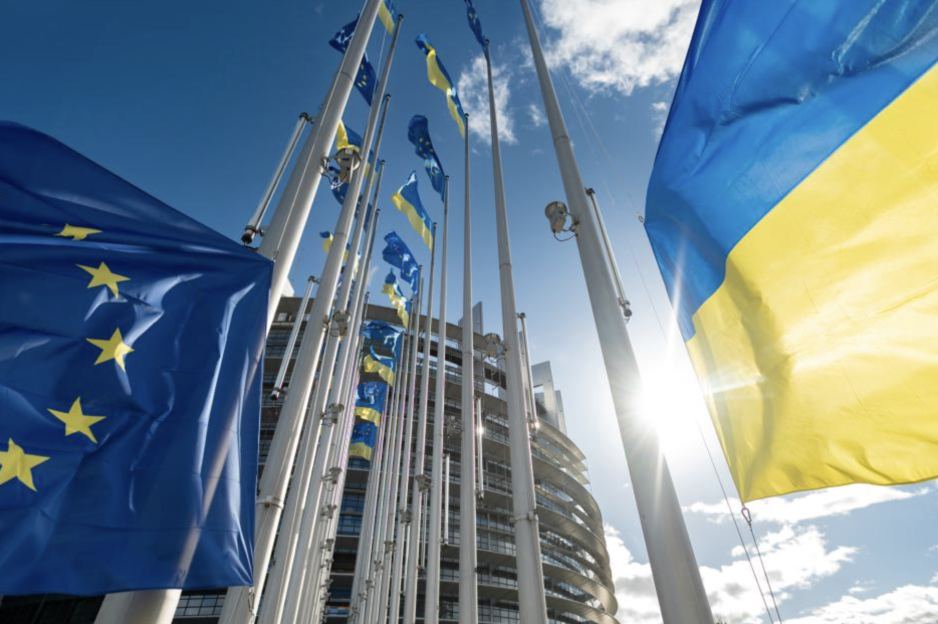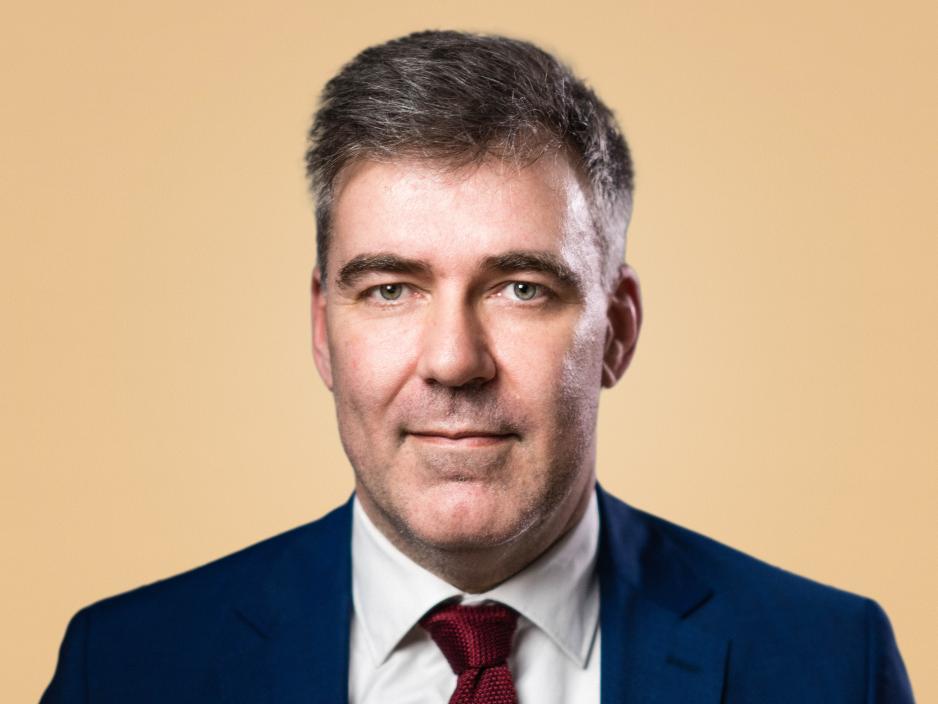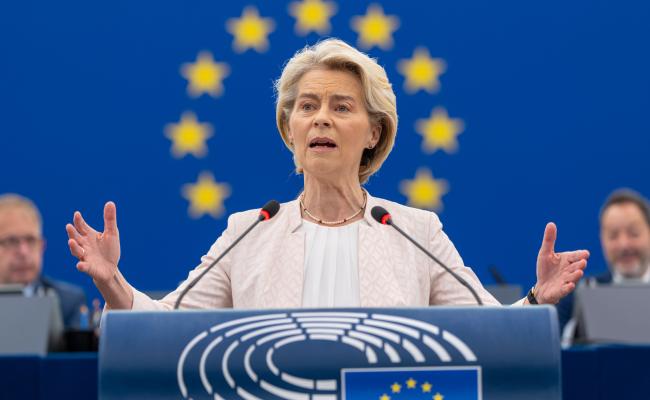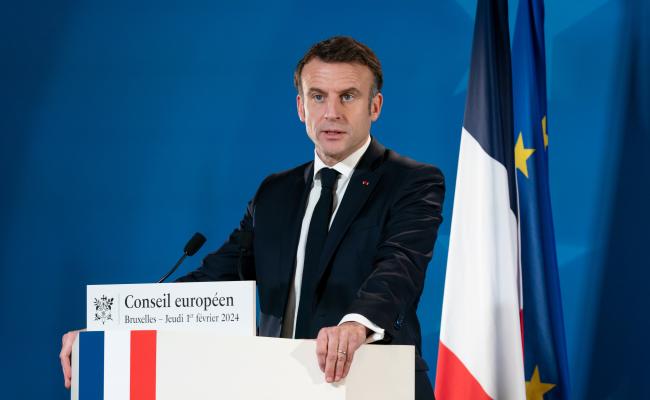EU Council Agrees on Framework for Phaseout of Russian LNG by 2028

EU and Ukraine flags in Brussels 2024. (Source: Courtesy of and © European Union, 2024 - EP)
The European Union continues to inch toward a full ban of Russian gas. On Monday the Council of the EU agreed on the framework for the draft legislation which will now be further negotiated with the Parliament and Commission. The regulation proposes a ban by January 1, 2028. It does not mention an accelerated timeline proposed by the Commission earlier this summer.
The Council of the EU has agreed on its negotiating position on the phaseout of Russian pipeline gas and liquefied natural gas (LNG).
The draft legislation will now be further debated in the "trilogue" between the European parliament, the Commission and the Council, with the aim of reaching an agreement by the end of the year.
The proposed legislation introduces a binding tiered approach for the phaseout of Russian gas supplies, with a full ban coming into effect by January 1, 2028.
U.S pressure
"Although we have worked hard and pushed to get Russian gas and oil out of Europe in recent years, we are not there yet. Therefore, it is crucial that the Danish Presidency has secured an overwhelming support from Europe’s energy ministers for the legislation that will definitively ban Russian gas from coming into the EU," said Lars Aagaard, Minister for climate, energy and utilities of Denmark.
A suggested earlier phaseout by January 1, 2027 proposed by the Commission earlier this summer following pressure by U.S. President Trump, seems to have lost momentum, with several officials, including French President Macron, stating they don't see a need to accelerate the initial timeline.
Russia is now Europe’s second largest LNG supplier
Member states continue to purchase billions of dollars of energy from Russia prompting President Trump to say that states were “funding a war against themselves.”
In fact Russia remains a significant supplier, especially of gas in the liquefied variety.
"Three years and a half after the EU launched the REPowerEU plan to reduce dependency on Russian gas imports, the bloc has diversified sources, reduced gas demand but Russia is now Europe’s second largest LNG supplier," says said Ana Maria Jaller-Makarewicz, lead energy analyst, Europe, at IEEFA, a nonprofit organization.
IEEFA publishes the European LNG tracker showing flows of the supercooled gas into the continent.
Time runs out for Russian gas
Under the now agreed-upon draft legislation, imports of Russian gas will end by January 1, 2026 with exceptions for existing short and long-term contracts.

Lars Aagaard Minister, The Moderates Minister for Climate, Energy and Utilities. (Photo: Adam Rieper)
Short-term deals signed before June 2025 would be allowed to continue until June 2026, with long-term contracts continuing an additional 18 months beyond that.
To ensure supply security the Council proposes to ease import and documentation requirements for non-Russian supplies. Russian deliveries must be authorized at least one month before entry.
Higher market prices
That timeframe shortens to only 5 days for non-Russian supplies.
This prior authorization regime may further reduce the attractiveness of Russian gas by limiting spot market deliveries at times of higher market prices.
The proposed rules would also effectively ban mixed cargoes where Russian and non-Russian supplies are co-mingled. Only the non-Russian share would be allowed to enter the EU.
Suspension clause
The Council also came to an agreement about tightening gas transit procedures to better track gas flows and prevent Russian gas from entering the EU when passing through the bloc.
The proposed rules and timeline for gas would also apply to the limited oil supplies still flowing into a handful of EU countries.
The text also contains a suspension clause allowing temporary imports from Russia during times of disruptions threatening supply security, which addresses voiced concerns of several member states.
The Danish Council presidency will now begin negotiations with the European Parliament to agree on the final text for the regulation.



